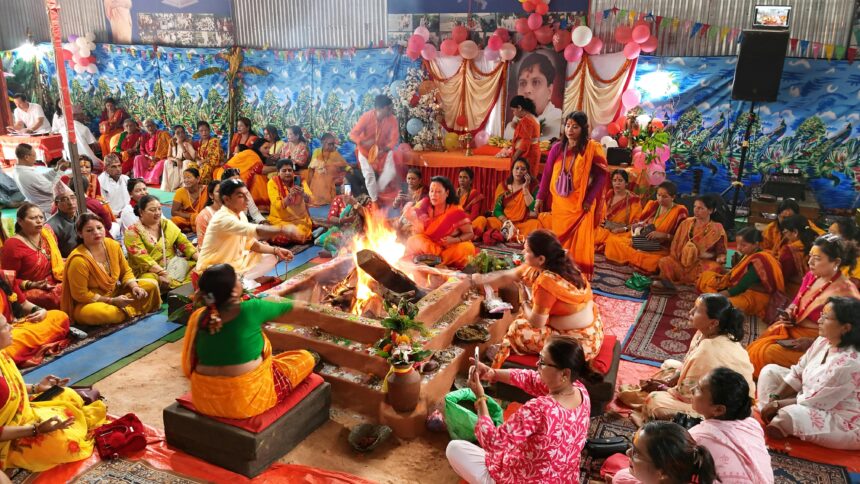Unity in Diversity: The Essence of Hinduism
Hinduism, often described as a way of life rather than a singular religion, is a living example of unity in diversity. It encompasses a vast array of practices, rituals, and philosophies that vary across regions, communities, and cultures. This pluralistic nature not only enriches Hindu beliefs but also serves as a powerful reminder of the inclusivity and adaptability that define the tradition.
From Vedic rituals to Bhakti devotion, Tantra mysticism, and folk traditions, the diverse practices within Hinduism reflect its openness to different paths for spiritual realization. But how does this diversity strengthen the faith, and what lessons does it offer for a modern, interconnected world?
The Many Paths to the Divine
Central to Hinduism is the belief in multiple ways to attain spiritual enlightenment. The paths of karma (action), bhakti(devotion), jnana (knowledge), and raja (meditation) are examples of how individuals can align their spiritual practices with their unique dispositions.
The Bhakti movement, which emphasizes devotion to a personal deity, exemplifies this diversity. From the songs of Meerabai in Rajasthan to the compositions of Tyagaraja in Tamil Nadu, regional interpretations of Bhakti have enriched Hindu spirituality over centuries. A 2023 report by the National Centre for Performing Arts highlighted how the preservation of these devotional art forms is fostering cultural continuity in the modern era.
Similarly, Tantra, often misunderstood, explores the union of the physical and spiritual realms through intricate rituals and meditative practices. These paths coexist with the philosophical rigor of Advaita Vedanta, which emphasizes non-duality and the oneness of the self with the cosmos.
Rituals Rooted in Local Traditions
Hinduism’s ability to integrate local customs into its broader framework is another source of its strength. From Durga Puja in Bengal to Onam in Kerala, regional festivals embody the cultural diversity within Hindu beliefs. These celebrations not only preserve local traditions but also reinforce the idea that spirituality can be expressed in myriad forms.
According to a 2022 survey by the Indian Council for Cultural Relations, over 70% of respondents viewed regional rituals and festivals as essential for sustaining their connection to Hinduism. This highlights the importance of preserving these traditions amid rapid modernization.
Inclusivity as a Core Value
Diversity in Hindu practices fosters inclusivity, making space for various communities to coexist under the broader dharmic umbrella. This inclusivity extends beyond faith, embracing ecological harmony, interfaith dialogue, and social reform. The Vedic principle of “Vasudhaiva Kutumbakam” (the world is one family) encapsulates this spirit of unity.
Modern initiatives, such as the Interfaith Dialogue Series hosted by the Indian Council of Philosophical Research in 2023, have drawn from Hindu teachings to promote global harmony. Such efforts underline how Hinduism’s pluralistic ethos can address contemporary challenges.
Challenges and the Way Forward
Despite its inclusive nature, Hinduism faces challenges in preserving its diversity. The commodification of certain practices, such as yoga, risks overshadowing their deeper spiritual meanings. Additionally, the homogenization of rituals and festivals in urban settings sometimes dilutes regional uniqueness.
To address these challenges, educational reforms and cultural preservation initiatives are essential. Programs like the “Sanskriti Samvardhan” project aim to document and promote local traditions, ensuring that future generations appreciate the richness of Hindu diversity.
Strength in Diversity
The diversity within Hinduism is not a weakness but a profound strength. It allows the faith to evolve, adapt, and remain relevant across centuries. By embracing different practices and paths, Hinduism demonstrates that spirituality is not a one-size-fits-all journey but a deeply personal quest for truth and connection.
As we celebrate this diversity, we also honor the essence of Hindu beliefs: unity in multiplicity, inclusivity in practice, and the enduring pursuit of spiritual wisdom. These lessons are as relevant today as they were thousands of years ago, offering inspiration for a world in need of harmony and mutual respect.


Leave a Reply